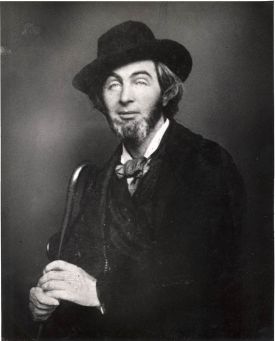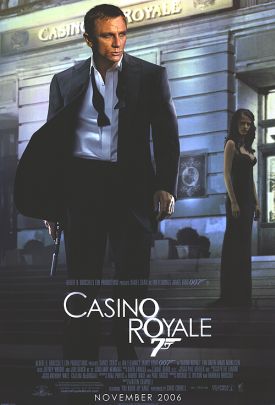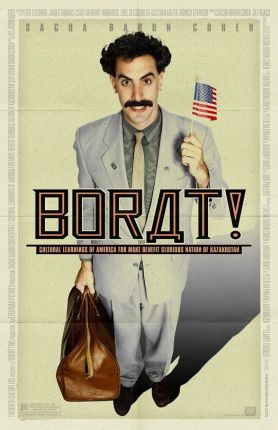Lexicographic lies
From The New CriterionMoonbat
“The immorality of the United States and Great Britain’s decision to invade Iraq in 2003, premised on the lie that Iraq possessed weapons of mass destruction, has destabilised and polarised the world to a greater extent than any other conflict in history.” Thus did Archbishop Desmond Tutu recently demonstrate that he is no more competent as a historian than he is as a moralist. But, as with so many Anglican clergymen these days, he is more of a politician than either. His manifesto in The Observer, Britain’s premier left-of-center Sunday paper, was by way of explanation for why he refused to meet with the former British Prime Minister Tony Blair at a leadership seminar in South Africa. Elsewhere in the same paper the Archbishop, architect of South Africa’s post-Apartheid Truth and Reconciliation Commission, called for Mr Blair and former President George W. Bush to be put on trial for War Crimes at the Hague. To that end, George Monbiot, a British journalist affectionately known to his admirers as “Moonbat,” has started what he calls “a bounty fund” at http://www.arrestblair.org/ to make payouts to people willing to brave Mr Blair’s security detail in order to make an ostensible effort to effect a citizen’s arrest of the former Prime Minister. Moonbat prefers to avoid being arrested himself, however, a fate that often befalls his paid stooges.
The Archbishop offers no justification for the charge of lying against the Prime Minister, nor does his journalistic ally, backing him up in The Guardian the following day, offer any on his behalf. Both men apparently regard the charge as uncontroversial – perhaps because it has been chanted so often by those with whom they customarily associate that they assume everyone regards it as established truth. In Britain, however, there are still here and there a few people of the anti-war and anti-Blair faction with enough of a rhetorical conscience to examine the matter critically. One such is Kevin Marsh, author of a forthcoming book of presumably more temperate criticism of Mr Blair, who concludes that Archbishop Tutu is not justified in calling him a liar. “Lying,” he writes,
requires a guilty mind – a mens rea as the lawyers call it. The liar knows X is true and Y is false – and deliberately chooses to say Y is the truth. I don’t believe that Tony Blair or anyone around him knew that Saddam had no WMD and chose to say that he had. That’s what would have been necessary for it to have been a “lie.” What they did know, however, was that the evidence to support the Prime Minister’s belief was thin and at best ambiguous. And that what there was was uncorroborated, insecurely sourced, limited, questionable, arguable and, some thought, wrong. It was no basis on which to persuade a skeptical party and public into supporting something as grave and uncertain as a foreign war.
I think it too bad Mr Marsh didn’t go just a bit further to acknowledge that military intelligence is nearly always uncorroborated, insecurely sourced, limited, questionable, arguable and thought by some to be wrong. That is simply in the nature of any attempt to find out what a determined enemy is resolved you shall not find out. If we waited for secure intelligence, we should never go to war at all – which is, admittedly, what most in the anti-war party probably want.
Does this make them liars for continuing to pretend that their protests are based on the absent WMDs when they would have opposed the war even if Messrs Blair and Bush had been completely right about those weapons’ existence? That’s a tough question to which we shall return presently. But first let’s look a little more closely at Mr Marsh’s laudable attempt at precision with regard to an elementary point of language which an ever more partisan and unscrupulous media is ever less inclined to insist upon – or even to know exists. Take, for example, Jonathan Cohn of The New Republic. Having made the modest claim that vice-presidential nominee Paul Ryan, in his speech to the Republican convention, had been guilty of “The Most Dishonest Convention Speech … Ever” – a question mark at the end of the headline turns out to have been just for show – Mr Cohn appears to have been stung by criticism from the likes of Ross Douthat of The New York Times and Ben Smith of Buzzfeed into attempting his own definition of “lie.” It is a definition designed, perhaps not accidentally, so as to include the things he disliked about Mr Ryan’s speech.
The definition of “lie” is less specific than you might think, at least according to the dictionaries I consulted. It can mean any statement that is deceptive. But in politics we understand “lie” to mean a statement that is flatly, objectively untrue. Very few, if any, of Ryan’s statements would satisfy that narrow definition. Most of Ryan’s statements were deceptive because they left out critical context. But the statements that deserve the most scrutiny in presidential campaigns aren’t necessarily the ones that misstate facts. They are the statements that, as Kevin Drum wrote at Mother Jones over the weekend, represent “attempts to mislead.”
 |
Unfortunately, Mr Cohn doesn’t give us any clues as to which dictionaries he consulted, but right at the top of the definition in the dictionary I most often use, the Oxford English one, it says “a false statement made with intent to deceive; a criminal falsehood.” You see? “Intent,” just as Kevin Marsh says, is right up front: the same mens rea that makes a falsehood criminal (or at least culpable) as opposed to a mistake, a misstatement, a misapprehension, a terminological inexactitude or an untrue opinion in the opinion of those holding contrary opinions. Yet neither Jonathan Cohn nor any of his multiple dictionaries ever heard of this stipulation, apparently. If he continues to think “it can mean any statement that is deceptive,” he’d better throw away his rubbish dictionaries and get himself a proper one. Nor is Kevin Drum of Mother Jones necessarily more reliable than those cheap, no-good dictionaries, since his “attempts to mislead” likewise conveniently omits the crucial detail of the guilty mind. Unless either Mr Cohn or Mr Drum has some evidence which he is choosing to withhold that Paul Ryan knowingly attempted to mislead his audience, neither can be permitted the cheap forensic high of calling him a liar – nor yet “dishonest,” which Mr Cohn’s poorly written and researched dictionaries seem to have misled him into thinking a more acceptable substitute. Not if we ourselves are to preserve a strict regard for the truth.
Just kidding! I lied. It turns out that the OED and I are shacked up together in what former President Bill Clinton calls “an alternative universe” – a universe where we may permit ourselves fondly to imagine that rationality and truth and linguistic precision have something to do with one another. Back in the universe of discourse that most of the rest of the world inhabits, there appear to be no such constraints on the partisan urge to attribute bad faith to one’s political opponents, along with all their other bad qualities. It’s true what I said about the OED, but other dictionaries that are generally considered to be reputable now, and that are certainly not cheap, go in for equivocation in such a way as to give Mr Cohn some warrant for his wrong opinion. Webster’s, for instance, offers an interesting fudge. Its definition 1a. of “Lie” says it is “an assertion of something known or believed by the speaker to be untrue,” thus confirming that intention is crucial. But then it adds definition 1b: “an untrue or inaccurate statement that may or may not be believed true by the speaker.” Typical Webster, you might think, wanting to have it both ways and blithely ignoring the flat contradiction between its first and second definition. If 1a. is valid, then 1b. is not. If 1b. is valid, then 1a. is not.
But Webster’s is not alone. The American Heritage Dictionary is similarly unfazed by the same illogic. It starts off with the best of intentions: “A false statement deliberately presented as being true,” but then, after a semi-colon, it adds simply: “a falsehood.” In the same way, under the verb lie, definition 1. says: “to present false information with the intention of deceiving,” but definition 2. throws up its hands in surrender to the more latitudinarian usage: “To convey a false image or impression.” As an example, there follows: Appearances often lie. Curious, that. I have heard the expression, “Appearances can be deceiving,” but I have never heard anyone say or read anyone write that “Appearances often lie.” It almost sounds like something someone has just made up to resemble a familiar saying in order to justify the non-moral meaning of the word. The Random House Dictionary, likewise, starts out strong with definition 1. “a false statement made with deliberate intent to deceive; an intentional untruth; a falsehood.” But there’s that semi-colon again! The writer obviously felt the need to suggest that it is not an intentional falsehood but any falsehood which qualifies. Definition 2. (“something intended or serving to convey a false impression; imposture”) hitches up the dictionary’s trousers again, but by definition 3. (“an inaccurate or false statement”) they are down for good.
Alas, it seems that nearly all of today’s lexicographers have adopted Walt Whitman’s attitude to self-contradiction.
Do I contradict myself?
Very well then I contradict myself.
(I am large, I contain multitudes.)
 |
As in so many other ways, the dictionaries in this instance want both to preserve some memory of the more rigorously correct past of the language and to assure their readers that, in our enlightened and permissive age, no one but a pedant or a grammar-Nazi is going to hold them to a similar rigor. My old Chambers, dating back to the 1990s, is only slightly more subtle, starting out with intention – “a false statement made with the intention of deceiving” – once again in pride of place, but it immediately follows this with: “anything misleading or of the nature of imposture.” Likewise, the definition of the verb – “to make a false statement with the intention to deceive” – is followed immediately by the alternative formulation, “to give a false impression” – which, as Kevin Drum certainly understands, may or may not involve intention. These very wrong people do seem to have the less discriminating sort of dictionaries as well as (increasingly) common usage on their side.
For it is also the way conservatives use the word now. Here’s Jay Nordlinger at National Review online, for example, on Bill Clinton’s speech to the Democratic Convention in Charlotte: “The way Democrats talk about Republicans is absolutely bizarre: They portray Mitt Romney et al. as hard- core libertarians who want to strip government down to practically nothing. Do they know they’re lying? Or are they honestly confused?” How, we might ask, can they not know they’re lying? If they don’t know they’re lying, then they’re not lying, I want to say. And I think this is true, too: they’re not lying. But neither are they honestly confused. They simply believe that their own exaggeration for rhetorical effect in pretending the GOP want to do away with government is a trivial one and expresses what they would doubtless call “a larger truth.” We may think this means they’re living in Mr Clinton’s “alternative universe” but that doesn’t mean they’re lying. What do we gain by saying they are?
But then there is also this way of looking at it. Having blanketed the media landscape with charges of lying brought against their opponents, the Democrats are now well covered for lying themselves, openly and shamelessly as Mr Nordlinger thinks they are doing with their caricature of Republican constitutionalism. He who falsely accuses someone else of lying is, of course, lying himself as well as creating – as why should he not, if he has no compunction about lying? – the conditions for future lies. Perhaps it is in this context that we should see that “alternative universe” to which Bill Clinton so hilariously exiled the Republicans in his speech in Charlotte. He said that the GOP in their own gathering in Tampa the week before had talked “all about how the President and the Democrats don’t really believe in free enterprise and individual initiative, how we want everybody to be dependent on the government, how bad we are for the economy.” In other words, he was complaining about a similar caricature of his party to the one of the Republicans that Mr Nordlinger is complaining about. Maybe the one caricature is the answer to the other, as Mr Clinton goes on immediately to caricature the Republicans along the same lines Mr Nordlinger objects to, pretending to think they believe that “every one of us in this room who amounts to anything, we’re all completely self-made.” That’s what he meant by that “alternative universe” he consigned them to – a formulation which is itself a euphemism for lying, since it posits, with attempted humor, an impossible condition under which the other side could be telling the truth.
And here’s where we come back to the question of whether the anti-warriors’ obsession with the Weapons of Mass Destruction is any kind of a lie. For another thing I would add to the definition of lie, if I were the grammar F¨¹hrer and not just an everyday sort of grammar Nazi, is this: you cannot lie to someone to whom you have no obligation of faith. An enemy, say. Deceit in war is not lying. Deceit of a criminal who wishes to do you harm is not lying. On a football field, if a quarterback fakes a handoff in order to throw a pass, or vice versa, he’s not lying. Deception, knowing, intentional deception, is a part of the game. Lots of people would say that the same goes for politics, which are and always have been essentially tribal. We owe an obligation of faith to others in our tribe, as to our spouses or family, which is why Mr Clinton’s lies about his relationship with Monica Lewinsky were so big a deal that even the media had to notice them while his routine fibs about Republicans pass unnoticed, for the most part, even by the media’s falsely but not coincidentally named “fact-checkers.” That’s because, encouraged by the media, people think of our public life as a game – a game, like most games, of which deliberate deception can be expected to be a part.
Yet it is also a part of the game – and the game’s deceptions – for the players to pretend that it’s not a game. Hence our periodic fits of outrage at the “lies” of the other side. How dare they not be as devoted to the truth as we pretend to be! It’s all part of the increasing corruption of our political discourse. But what are you going to do? As the dictionary definitions of “lie” suggest, the only answer to that question, as to so much else these days, is that all-purpose rejoinder: “Whatever!” Or, as I believe is more common among the young, Whatevs. That bit of slang, by the way, hasn’t yet made it into the OED, and “whatever” as a colloquial interjection (orig. U.S.) only appears in a draft addition from May, 2001, where the word is said to be employed “usually as a response, suggesting the speaker’s reluctance to engage or argue, and hence often implying passive acceptance or tacit acquiescence; also used more pointedly to express indifference, indecision, impatience, skepticism, etc.:’as you wish’;’if you say so’;’it makes no difference to me’;’have it your own way’;’fine’.”
That’s the impression I get, too, when I hear the word used as one so often does these days. But it strikes me as a matter of some significance that for its first 1500 years the English language got along very well without a single word meaning the speaker’s reluctance to engage or argue or that signified passive acceptance with connotations of impatience and skepticism. Could it be that the sudden need for this new word and the late debasement of the old word “lie” are related? Whatever! That’s the permissive lexicographer’s attitude, too, to those who would remonstrate with him about the loss of an important – I think a crucial – distinction between a mistake and a lie, as a result of which the latter word retains only its emotional and not its semantic difference. Whatever! The political game we find ourselves playing in 2012 has much need of emotion but very little of semantics which, along with Bill Clinton’s “arithmetic” and the rest of the vestigial rationality of our discourse, if it exists at all, is like Jonathan Cohn’s question mark in being only for show.
The accusation of bad faith is the nuclear weaponry of debate. It can only be used as part of an implied pact of Mutually Assured Destruction. As those long-dead pioneers of democratic custom well understood when, in the Mother of Parliaments, they banned “lie” and “liar” as “unparliamentary language,” it sunders the community of discourse that democratic politics presupposes. It is rhetorically suicidal, because it cuts one off from any further dialogue with those one employs it against. For the victim, the charge is unanswerable since, as Leontes in Shakespeare’s Winter’s Tale quite reasonably points out in the course of making a false accusation of lying as well as adultery against his wife, “I ne’er heard yet/That any of these bolder vices wanted/Less impudence to gainsay what they did/Than to perform it first.” Hermione answers the only way she can: “That’s true enough,/Though’tis a saying, sir, not due to me.” Oh, Hermione! Don’t get me started on “due to”! But her attempt to exculpate herself can only be a counter-charge of lying, not a real answer. Which is impossible without a presumption of good faith. If we are reluctant to engage or argue nowadays, it is because argument itself has become exhausted and irrelevant, now that linguistic, like political authority, has given us licence to assume the bad faith of those we might otherwise be arguing against.
Discover more from James Bowman
Subscribe to get the latest posts to your email.







